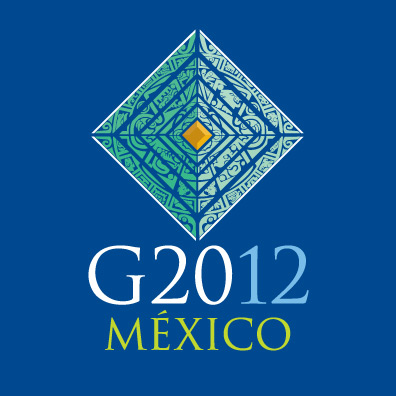[Editor: Apologies to all for the lengthy silence. But graduation of my older daughter took precedence. And let me just say that Princeton University knows how to conduct a graduation. Believe me!]
Every rescue effort brings momentary relief to world markets. Within days, however, the good feeling drains away. Worry returns and leaders then describe and urge the next step to solve the crisis. We move from Greece, to Spain and now to Italy and then back. The Eurozone crisis continues – at a low boil – but a boil nonetheless.
As significant time has passed on the Eurozone crisis, we are now faced with yet another G20 Leaders Summit in the midst of a Euro crisis. In fact the Greece national elections will occur just before the convening of the Leaders Summit – shades of Cannes all over again. And so the Los Cobos G20 Leaders Summit faces the fate that we experienced with the G20 in Cannes and the G8 in Camp David – a crisis in Europe that is likely to occupy and distract officials and G20 Leaders occupying, we presume, much of Leaders face time notwithstanding the agenda prescribed by the host country.
We are even more likely at the conclusion of this Summit – as opposed to earlier ones – to receive a round of media condemnation for the distraction from the agenda, the lack of outcomes for the Summit and no doubt a round scolding for the Leaders’ inability to solve the crisis.
And at one level who can blame the media. This slow motion Euro crisis results in each global summitry meeting “kicking the can down the road” on whatever agenda the host has prepared for the summit. The problem is that the excuse wears thin after several Summits and it is unlikely that the media will be placated that the next G20 Summit is likely to be more productive – after so much delay – not to mention that the next Summit could be well be over a year away somewhere – and hosted in Russia.
To parry such “negativism” leaders and officials have begun to urge the G20 to not let the agenda to be set aside by the “hurly burly” of the European crisis. Thus, for example, German officials have been urging a focus beyond Europe – now that of course is hardly a surprise since a crisis focus can only lead to greater pressure on Germany to take bolder action to end this seemingly “never-ending story”. Thus Reuters reported that senior German officials urged that:
The euro zone will surely be a topic, but as Europeans we also want to talk about other themes related to the global economy that go beyond the euro zone, for example budget consolidation in the United States, currency flexibility in China and structural reforms in emerging markets. … We think when talking about global growth it is important to look beyond the euro zone, not to the discussion to Europe.
German officials also expect to see action – long promised – to provide for the strengthening of the global economy over the medium-to-longer term, but still not likely to provide concrete stimulus plans by the G20 Leaders.
Mexican President Calderon too has spoken out expressing his hope that this action plan will form an important deliverable for this Summit:
(The action plan) will not only include measures to confront and resolve the European crisis, which is ultimately an economic crisis, but will also put forward concrete measures on public policy in key areas in the realms of tax, finance and monetary policy, which will help to boost global growth in the long term.
Chinese officials have also spoken out for the need to tackle not just the European crisis but make progress on on financial reform and push forward on international financial governance reform. Brazil has raised the spectre of even more conflict suggesting that it may cap its overall assistance to the IMF fund if there are not firmer efforts to address the quota and share issues – though Brazil is aware, as are the others, that the US Administration is not prepared to amend the IMF formula by way of legislative changes till after the November US election.
Forecasts are thus not bright for the Los Cabos gathering. The transition of the G20 Summit to a permanent meeting targeted on more medium-term issues – whether financial regulatory reform or on macroeconomic issues – seems to have faltered. It may be inevitable that leaders will be drawn to, or pushed, to deal with the issue of the moment. But the inability to get out from under the European crisis over an extended period of time has eroded, or is eroding, a sense of effectiveness of this Summit. This is not good for global governance overall.
As my colleague Dan Drezner says – “Am I missing something”.
Image Credit: Government of Mexico


